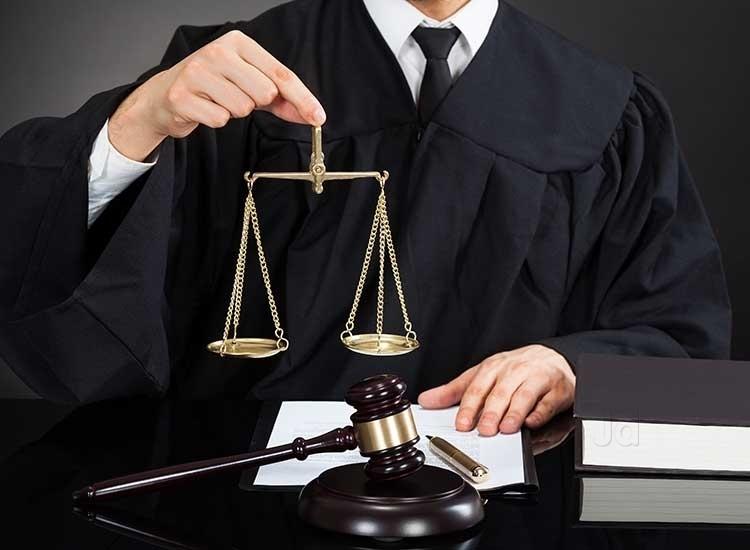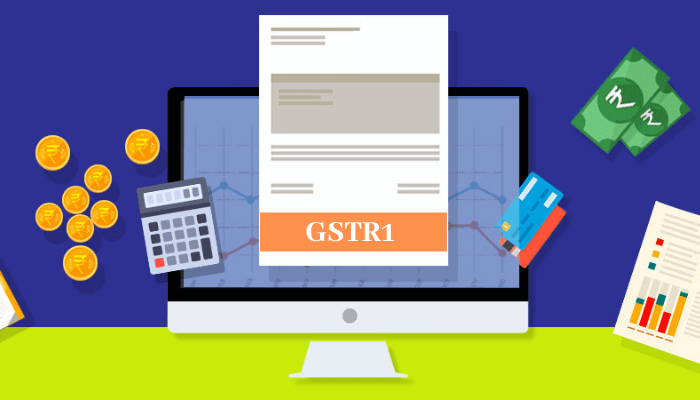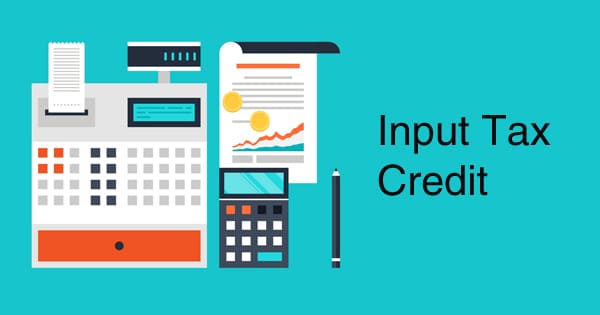Telangana High Court has in its recent ruling on the Writ Petition no. 7063 of 2021, issued vide order dated 3rd August 2021 in the case of M/s Deem Distributors Private Limited (“the assessee/ the petitioner”) has held that petitioner cannot be asked to make payment towards tax, interest or penalty while the investigation is underway.
The petitioner, being an assessee under Telangana GST Act, 2017, CGST Act, 2017, and IGST Act, 2017 is issued a letter specifying, Input Tax Credit availed by them are on the basis of fake invoices issued by certain fictitious suppliers/firms. The letter further specifies that, ITC availed by the petitioner is in a fraudulent manner without receiving any material, and the petitioner was requested to reverse ITC on such invoices.
In the instant case, no doubt, summon has been issued to the Director of the petitioner firm under Section 70 of the CGST Act to give evidence / depose statement and to produce certain purchase orders and to appear. Admittedly, investigation against the petitioner is underway and not complete, and no notice u/s 74(1) of the Act has been issued to it.
In the opinion of the Court , no tax demand can be issued or raised when investigation is still in progress. The respondents cannot be allowed to put the cart before the horse and collect any tax, interest or penalty before they determine, in an enquiry, after putting the petitioner/assessee of notice, and we are of the opinion that their action is wholly arbitrary and without jurisdiction.
The HC noted that, Section 74(5) of the CGST Act gives an option to the taxpayer to make any payment, if he is so opts, but it does not confer any power on the respondents (authorities) to make a demand as if there has been a determination of liability of the assessee and demand tax along with interest and penalty.
Consequent to the observation made, the HC directed the respondents to refund the amount already collected from petitioner along with interest @7% from the date of receipt till the date of refund.
FULL TEXT OF THE HIGH COURT ORDER
The petitioner is a partnership firm and is registered under the Telangana GST Act, 2017, CGST Act, 2017 and IGST Act, 2017 and is involved in the business of dealing in goods and services relating to Ferrous waste and scrap, re-melting scrap ingots of iron or steel, flat rolled products of iron or non-alloy steel of a width of 600 mm or hot rolled, not clad, plated or coated etc.
2. In the instant case, the 4th respondent issued a letter dt.25.04.2019 to the petitioner saying that the petitioner had availed input tax credit on the basis of invoices issued by certain suppliers/firms. It is stated in the said letter that the investigations conducted by the departmental officials reveal that the said suppliers/firms are fictitious and are issuing fake invoices with an intent to pass on input tax credit, and it appears that the said credit was availed by the petitioner in a fraudulent manner without receiving any material, and the petitioner was requested to reverse the input tax credit of Rs.1,52,35,820/- availed on such invoices immediately.
3. The 3rd respondent sent an intimation of tax ascertained as being payable on 22.01.2021 saying that petitioner is liable to pay Rs.1,17,35,822/- for the period February, 2018 to March, 2018 and he was being advised to pay it, failing which a show cause would be issued under sub-Section (1) of Section 74 of the Act.
4. No doubt summons have been issued to the Director of the petitioner firm under Section 70 of the Act to give evidence / depose statement and to produce certain purchase orders and to appear on 24.12.2020 and 25.01.2021 vide summons dt.22.12.2020 and 22.01.2021 respectively but admittedly investigation against the petitioner is not complete and no notice under Sub-section (1) of Sec.74 of the Act has been issued to it.
Contentions of Counsel for petitioner
5. The petitioner is assailing the conduct of respondents in directing it to remit the amount availed as input tax credit at the stage of summons itself without following due procedure under Section 74 of the CGST Act, 2017 (for short ‘the Act’).
6. Petitioner contends that to buy peace with the respondent and to avoid coercion, petitioner had paid Rs.10.00 lakhs on 30.04.2019 and Rs.25.00 lakhs on 13.09.2019 and the respondents are not entitled to make such a demand.
7. According to the Counsel for the petitioner, liability cannot be determined by respondents before conducting enquiry when even the investigation is incomplete; any advise or demand by the respondents 3 and 4 can at best be a provisional one; and when no enquiry has been initiated, petitioner cannot be compelled coercively to pay amounts to the respondents and this violates Art.14 and 300-A of the Constitution of India.
I.A.No.1 of 2021 in W.P.No.7063 of 2021
8. On 23.03.2021, in I.A.No.1 of 2021 in W.P.No.7063 of 2021, this Court initially granted interim stay of all further proceedings pursuant to the demand dt.25.04.2019 issued by 4th respondent and also the summons issued to the petitioner, and the said order was also extended on 06.04.2021 and 19.07.2021.
I.A.No.2 of 2021
9. A.No.2 of 2021 is filed to vacate the said order.
The stand of the respondents
10. In the counter-affidavit filed on behalf of respondents, it is admitted in para-7 that investigation proceedings are still going on against the petitioner and have not been concluded.
11. In para-8 of the counter-affidavit, reference is made to the intelligence information obtained from the Assistant Commissioner, Balasore Division, and it is contended that the intelligence passed on by them is very much actionable and on that basis, summons had been issued on 09.09.2019 and statement was recorded on 13.09.2019 from the Director of the petitioner firm.
12. Though certain allegations are leveled against petitioner in para-10 to 13 of the counter affidavit, they require to be put to the petitioner by way of a notice under Section 74 of the Act for the petitioner to respond.
13. It is admitted in para-15 of the counter-affidavit that no notice for tax demand has been served or raised under Section 74 of the Act as the investigation is still in progress and had not reached finality. It is contended that pending investigation, petitioner was advised, before issue of show cause notice, based on the intelligence received from the other Commissionerates to pay the amount of tax along with applicable interest and penalty under Section 74(5) of the Act.
14. In para-18 of the counter-affidavit, it is specifically stated that since investigation is under progress, no notice for a tax demand has been made or raised under Section 74 of the Act.
The consideration by the Court
15. Section 74 of the Act deals with determination of tax not paid or short paid or erroneously refunded or input tax credit wrongly availed or utilized by reason of fraud or any wilful-misstatement or suppression of facts. It states:
“74. Determination of tax not paid or short paid or erroneously refunded or input tax credit wrongly availed or utilized by reason of fraud or any wilful-misstatement or suppression of facts:- (1) Where it appears to the proper officer that any tax has not been paid or short paid or erroneously refunded or where input tax credit has been wrongly availed or utilized by reason of fraud, or any wilful-misstatement or suppression of facts to evade tax, he shall serve notice on the person chargeable with tax which has not been so paid or which has been so short paid or to whom the refund has erroneously been made, or who has wrongly availed or utilized input tax credit, requiring him to show cause as to why he should not pay the amount specified in the notice along with interest payable thereon under Section 50 and a penalty equivalent to tax specified in the notice.
(2) The proper officer shall issue the notice under sub-section (1) at least 6 months prior to the time limit specified in sub-Section (10) for issuance of order.
(3) Where a notice has been issued for any period under sub-Section (1), the proper Officer may serve a statement, containing the details of tax not paid or short paid or erroneously refunded or input tax credit wrongly availed or utilized for such periods other than those covered under sub-Section (1), on the person chargeable with tax.
(4) The service of statement under sub-Section (3) shall be deemed to be service of notice under sub-Section (1) of Section 73, subject to the condition that the grounds relied upon in the said statement, except the ground or fraud, or any wilful-misstatement or suppression of facts to evade tax, for periods other than those covered under sub-Section (1) or the same as are mentioned in earlier notice.
(5) The persons chargeable tax may, before service of notice under sub-Section (1), pay the amount of tax along with interest payable under Section 50 and a penalty equivalent to 15 per cent of such tax on the basis of his own ascertainment of such tax or the tax as ascertained by the proper office and inform the proper officer in writing of such payment.
(6) The proper officer, on receipt of such information, shall not serve any notice under sub-Section (1), in respect of the tax so paid or any penalty payable under the provisions of this Act or the Rules made thereunder.
(7) Where the proper officer is of the opinion that the amount paid under sub-Section (5) falls short of the amount actually payable, he shall proceed to issue the notice as provided for in sub-Section (1) in respect of such amount which falls short of the amount actually payable.
(8) Where any person chargeable tax under sub-Section (1) pays the said tax along with interest payable under Section 50 and a penalty equivalent to 25 per cent of such tax within 30 days of issue of the notice, all proceedings in respect of the said notice shall be deemed to be concluded.
(9) The proper officer shall, after considering the representation, if any, made by the person chargeable with tax, determine the amount of tax, interest and penalty due from such person and issue an order.
(10) The proper office shall issue the order under Section 9 within a period of five years from the due date for furnishing of annual return for the financial year to which the tax not paid or short paid or input tax credit wrongly availed or utilized relates to or within 5 years from the date of erroneous refund.
(11) Where any person served with an order issued under sub-Section (9) pays the tax along with interest payable thereon under Section 50 and a penalty equivalent to 50 per cent of such tax within 30 days of communication of the order, all proceedings in respect of the said notice shall be deemed to be concluded. ….”
16. A reading of the above provision indicates that a notice in sub- Section (1) of Section 74 of the Act may be issued by the proper officer if he is of the opinion that the input tax credit has been wrongly availed or utilized by reason of fraud, or any wilful-misstatement or suppression of facts, to the person who has wrongly availed or utilized input tax credit, requiring him to show cause as to why he should not pay the amount specified in the notice along with interest payable thereon under Section 50 and a penalty equivalent to the tax specified in the notice.
Sub-Section (5) of Section 74 of the Act, however, enables the person chargeable with tax to, before service of notice under sub-Section (1) of Section 74, pay the tax along with interest payable under Section 50 and a penalty of 15% of such tax on the basis of his own ascertainment of such tax or the tax ascertained by the proper officer and inform the proper officer in writing of such payment.
Sub-Section (9) of Section 74 of the Act enables the proper officer to determine the amount of tax, interest and penalty due from such person and issue an order, if the contents of the notice are disputed.
17. The tenor of the counter affidavit filed by respondents suggests that a conclusion appears to have been drawn on the basis of the incomplete investigation already done that petitioner had availed input tax credit and raised invoices by certain fictitious suppliers without actual receipt of goods.
18. We do not see how, without there being a determination of liability of the petitioner in any enquiry conducted under the Act, a demand for reversal of input tax credit or payment of tax with interest for penalty, can be raised by respondents.
19. In our opinion, sub-Section (5) of Section 74 of the Act gives a choice to the tax payer to make any payment, if he is so chooses, but it does not confer any power on the respondents to make a demand as if there has been a determination of liability of the Assessee and demand tax along with interest and penalty.
20. Before ascertainment of liability, the 4th respondent could not have issued the letter dt.25.04.2019 to the petitioner asking him immediately reverse the input tax credit of Rs.1,52,35,820/- allegedly availed.
21. Also no advisory jurisdiction is conferred on the respondents to issue any ‘advises’ of the nature issued to the petitioner by 3rd respondent on 22.1.2021 asking him to pay Rs.1,17,35,822/- .
22. In our opinion, no tax demand can be issued or raised when investigation is still in progress. The respondents cannot be allowed to put the cart before the horse and collect any tax, interest or penalty before they determine, in an enquiry, after putting the petitioner/assessee of notice, and we are of the opinion that their action is wholly arbitrary and without jurisdiction.
23. Accordingly, the Writ Petition is allowed; the respondents are restrained from coercing the petitioner to make any payment without issuing notice under Section 74(1) of the Act and following the procedure therein; and they are directed to refund Rs.35,00,000/-already paid by petitioner with interest @ 7% p.a from the date of payment till date of refund within four (04) weeks from the date of receipt of a copy of this order.
24. It is however made clear that respondents can proceed with the investigation as well as enquiry under the provisions of the Act against the petitioner and act strictly in accordance with the Act.
25. I.A.No.2 of 2021 is dismissed. No costs.
26. Consequently, miscellaneous petitions, pending if any, shall stand closed.
READ / DOWNLOAD ORDER:
***
Follow us for free tax updates : facebook Twitter
Subscribe to our portal and get FREE Tax e-books, quality articles and updates on your e-mail.
Resolve your GST queries from national level experts on GST free of cost.
Frah Saeed is a law graduate specializing in the core field of indirect taxes and is the Co-founder of taxwallah.com. She has authored many publications on GST and is into full-time consultancy on GST to big corporates. She as a part of taxwallah.com heads a team comprising of Chartered Accountants and Advocates and plays a key role in our mission to disseminate GST knowledge to all.




